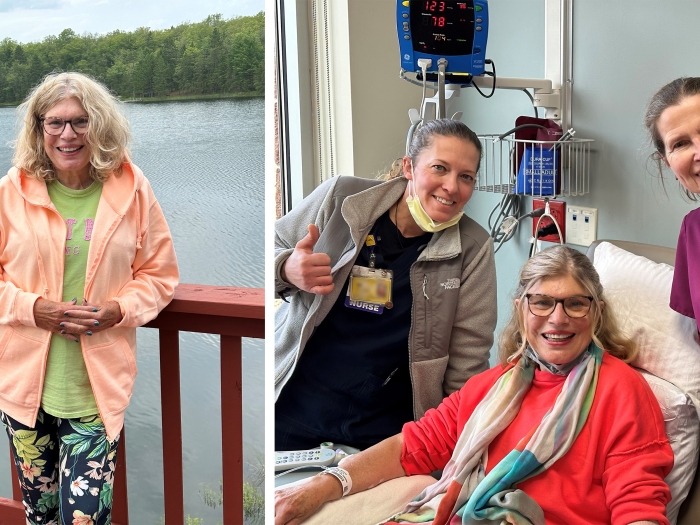Three clinical trials are investigating which of two screenings — colonoscopy or a lower-cost stool-based test — is more effective at saving lives.
2:00 PM
Author |

There's a culture clash regarding colonoscopy. Most patients outside the United States use stool-based colorectal cancer screening tests at home, rather than make an appointment for a colonoscopy.
The U.S. focus on colonoscopy is, in part, because of the procedure's capability to not only screen for colorectal cancer but also prevent it by getting rid of problematic polyps on the spot. Stool-based tests can detect blood in stool, which is helpful since most colorectal cancers ooze blood.
"Gastroenterologists view colonoscopy as a screening tool and a prevention tool," says Philip Schoenfeld, M.D., a gastroenterologist at the University of Michigan Health System and member of U-M's Institute for Healthcare Policy and Innovation. "But it's undoubtedly the most expensive way to perform colorectal cancer screening, and few other places in the world use it so routinely because of cost."
During Digestive Disease Week, the world's largest gathering of physicians and researchers in the fields of gastroenterology, hepatology, endoscopy and gastrointestinal surgery colonoscopy, Schoenfeld gave a lecture on whether colonoscopy deserves its crown as a standard of care.
It's not a benign test, Schoenfeld notes. Colonoscopy carries a risk of intestine perforation. There's also the inconvenience for patients who must prep by skipping solid food and drinking two to four liters of liquid laxative a day or two before the test.
Because patients are sedated for the procedure, they miss a day of work, and someone has to be available to take them home once it's over.
Ultimately what we want to know is if the screenings prevent death.Philip Schoenfeld, M.D.
Options beyond colonoscopy
Colonoscopy alternatives include the fecal immunochemical test (FIT), which checks for hemoglobin in stool that can be a sign of cancer.
But there are GI specialists who view this signal as too late compared with colonoscopy's ability to prevent cancer by finding and removing precancerous polyps.
While FIT is done every year, colonoscopy is recommended every five to 10 years.
The U.S. Preventive Services Task Force, an independent panel that evaluates medical evidence, put FIT on approximately equal footing with colonoscopy in terms of efficacy.
According to the task force's recent research, both strategies have about the same benefit when properly used: averting an estimated 22 to 24 deaths from colorectal cancer for every 1,000 people screened. Yet among Americans ages 50 to 75 who were screened in 2012, 61 percent had colonoscopies while 10 percent or fewer used stool-based tests.
The takeaway from these numbers: Colonoscopies dominate even though it's not clear if one tool is better than the other at reducing deaths from or the frequency of colorectal cancer.
Because it's not clear if one tool is better, three large, randomized clinical trials are underway that will be the first to put the colorectal screening tests side by side with a primary endpoint of death from colorectal cancer.
Two are based in Europe, and stateside the Veterans Affairs Office of Research and Development will randomize 50,000 adults to either colonoscopy or a stool-based test. About 35,000 have been enrolled for the VA-led trial, which will last more than a decade.
"Ultimately what we want to know is if the screenings prevent death. We'll have a better view of whether just as many lives can be saved with a test that's safer and cheaper than colonoscopy," Schoenfeld says.

Explore a variety of healthcare news & stories by visiting the Health Lab home page for more articles.

Department of Communication at Michigan Medicine
Want top health & research news weekly? Sign up for Health Lab’s newsletters today!





